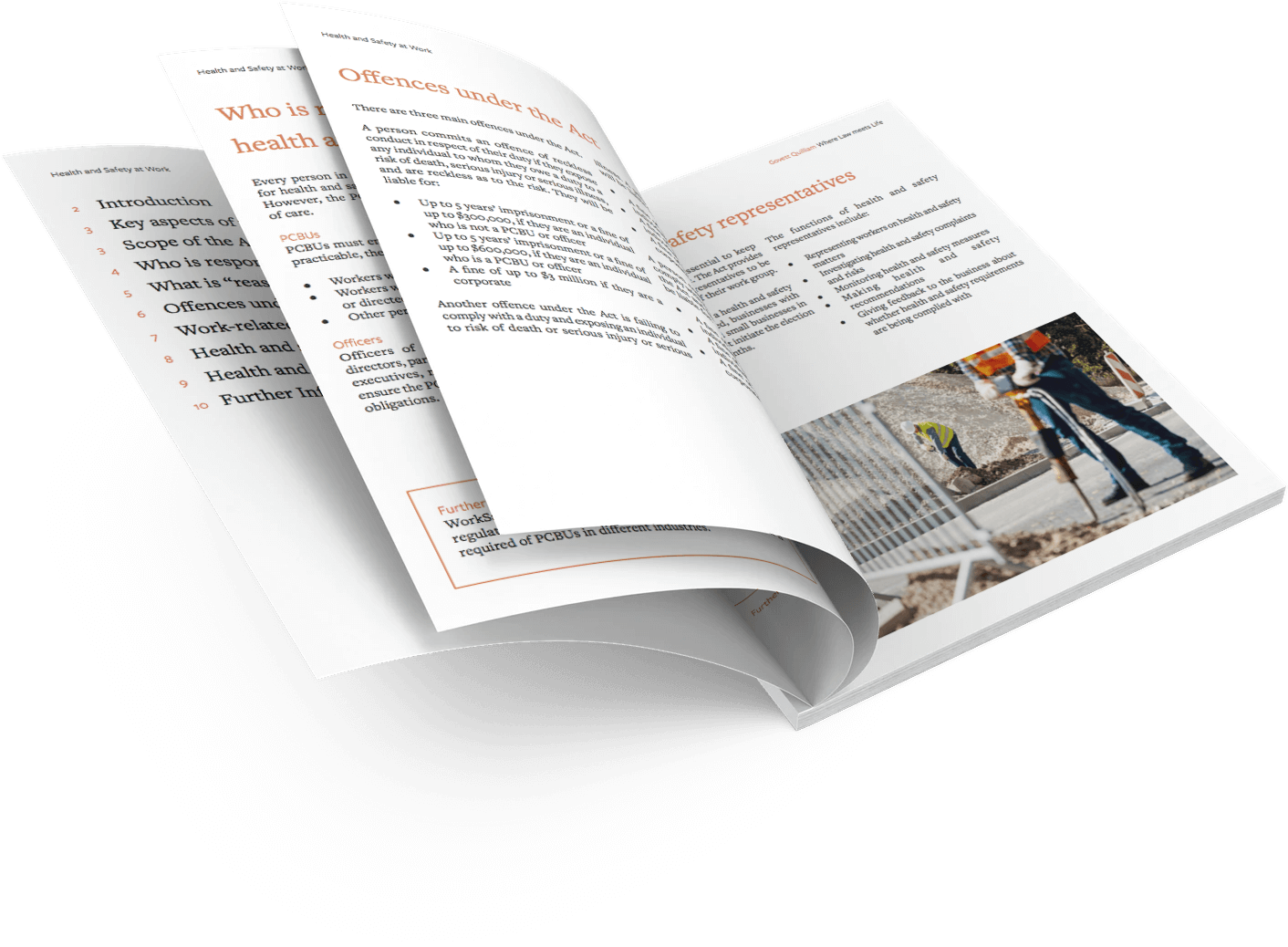
Parliament has passed significant changes to New Zealand’s overseas investment rules under urgency in response to the economic impact of COVID-19. The majority of the changes under the Overseas Investment (Urgent Measures) Amendment Act 2020 ("the Urgent Measures Act") came into force on 16 June 2020.
The Government introduced the changes due to concerns that important New Zealand businesses, land, and assets are vulnerable to being purchased by overseas buyers due to the financial strain caused by COVID-19. However some New Zealand businesses will need quick access to finance and investment to stay afloat and the Government also wants to ensure the Urgent Measures Act is not unduly onerous on such businesses.
The changes include a new national interest test and a new temporary notification power which will require notification of many transactions that do not currently require consent under the Overseas Investment Act 2005.
Emergency notification regime
Overseas persons will need to notify the Overseas Investment Office (“OIO”) before making any of the following overseas investments:
- Acquiring more than a 25% interest in a business.
- Increasing an existing interest of more than 25% to a more than 50% or 75% or 100% interest.
- Acquiring more than 25% of a business’ assets.
Overseas persons buying commercial properties used in carrying on business will be subject to emergency notification if the property being bought comprises 25% or more of the vendor business’s assets. The regime will capture purchases from commercial landlords as they are in the business of leasing property.
The emergency notification regime does not mean full OIO consent is required and only applies to transactions that do not require consent.
The notified transactions will be assessed to ensure they are in line with New Zealand’s national interests. The majority of property purchases will not pose any risk to the national interest. The OIO is aiming to issue a direction order within 10 working days allowing approved transactions to proceed. However, the new Overseas Investment Amendment Regulations 2020 only require the Minister to make a decision regarding a notified transaction within 40 working days of notification (and this timeframe may be extended once by 30 working days).
National interest test
There is a new test for "transactions of national interest" which includes transactions that involve non-New Zealand government investors, strategically important businesses, or an area of specific national interest. The Minister has a power to impose conditions, prohibit the transaction, order the disposal of sensitive assets that have been acquired, recommend the investor be put into statutory management, or allow the transaction to proceed. The Government’s intention is that the test will only be applied in limited situations and rarely used.
Low risk transactions
Existing rules have been simplified somewhat so some low risk transactions no longer require consent. These changes will help listed companies and investments that adjoin sensitive land.
Transactions prior to 16 June 2020
The emergency notification regime does not apply to transactions entered into before 16 June 2020. However:
- The changes will apply to transactions requiring consent entered into before 16 June 2020 if consent is applied for after that date.
- If a transaction entered into before 16 June 2020 would have required consent prior to the changes but consent is no longer required under the Urgent Measures Act, consent will not be required.
Looking ahead
Overseas persons looking to invest in New Zealand should seek legal advice on whether overseas investment rules are likely to affect their ability to invest. Where it is not clear whether a purchaser is an overseas person, both the vendor and purchaser should take legal advice and consider whether there will be any issues with fulfilling the terms of the agreement and whether the relevant agreement needs to be conditional on OIO approval.
Further, the application of the rules is broad and there is no dollar value threshold limiting when they apply. The OIO may become inundated in giving effect to the new changes and emergency notifications.
Uncertainty around the Urgent Measures Act may deter some overseas investors due to the increased notification requirements (or confusion between notification and consent by overseas investors). There will also be difficulties in unconditional auctions or tender bids by overseas persons, as they must notify the OIO prior to giving effect to the transaction.
On 31 July 2020 the Minister must review the emergency notification regime to ensure the transactions that are subject to the regime are not broader than necessary. The regime is set to be discontinued once the impacts of COVID-19 have diminished.
A further amendment (Overseas Investment Amendment Bill (No 3)) to overseas investment rules has also been introduced. Submissions on this Bill can be made to the Finance and Expenditure Committee until 31 August 2020.
The Government has indicated that the Committee will also review the success of the changes made by the Urgent Measures Act allow the public to provide feedback on the how the changes are playing out.
GQ's Corporate & Commercial team are here to assist if you require any further clarification.
Author: Rochelle Farmer






.png)

